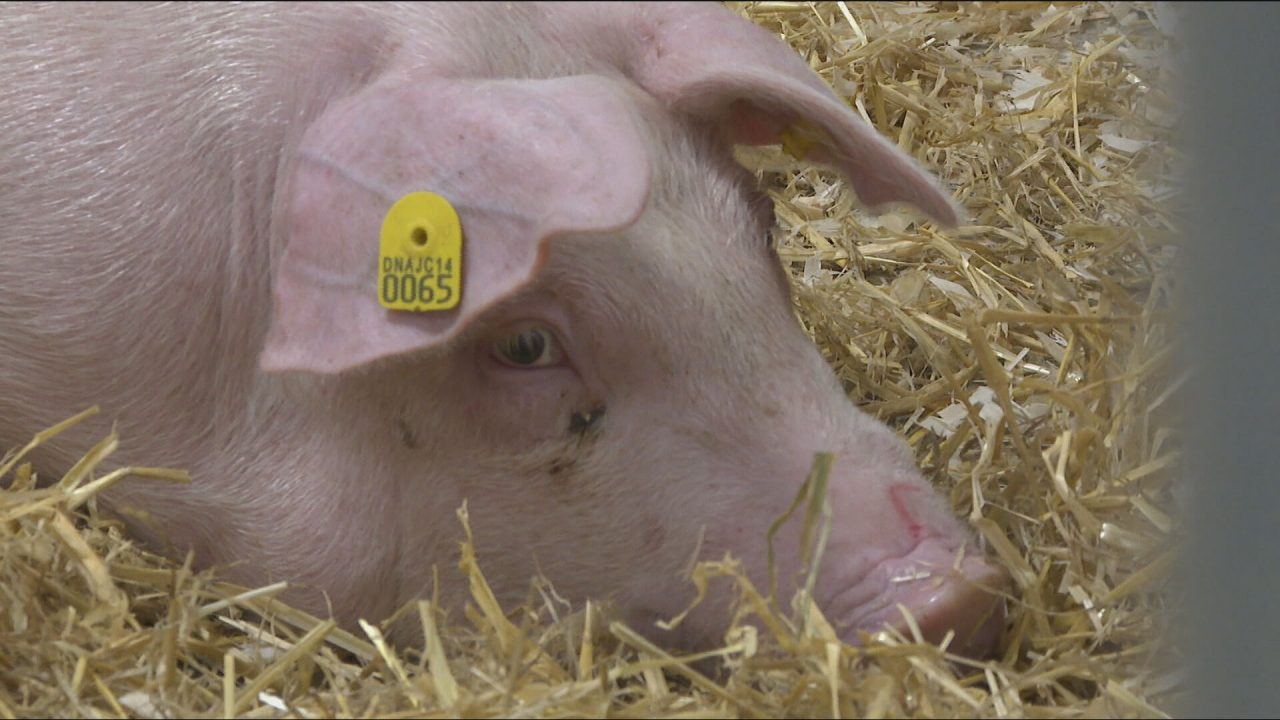Scientists at the University of Edinburgh say they have created pigs that are resistant to a highly infectious livestock disease.
Scientists have gene-edited a group of pigs to be resistant to Classical Swine Fever – a deadly livestock disease.
The last outbreak of Classical Swine Fever in the UK led to the culling of 75,000 pigs.
Researchers hope their breakthrough could help protect against other viruses that threaten farming across the country.
The work has been carried out at the Roslin Institute, the same place where Dolly the Sheep, the first mammal cloned from an adult cell, was born in 1996.
That breakthrough paved the way for the research being done today.
While there hasn’t been an outbreak of Classical Swine Fever in the UK in 25 years, the impact of such diseases can be devastating – not just for the farming industry, but for the animals themselves.
And there’s hope this study could benefit other types of livestock, too.
Dr Simon Lillico from the University of Edinburgh said: “If we can make animals that are resistant to diseases, that is obviously of benefit to the welfare of the animals, it is of benefit to farmers because you have no risk of losses associated with that particular disease.
“The genetic change that we’ve made in our pigs is also highly likely to work in sheep and cattle for other pestiviral diseases, so it could make a big difference in the UK.”
The study found that gene-edited pigs exposed to the virus remained healthy, while unedited animals showed typical signs of disease.
Dr Chris Proudfoot from the University of Edinburgh said: “The sorts of changes we’re talking about making are very small single base pair changes and they are very much akin to the sort of changes that occur naturally during the breeding process of any animals. And so we’re really making very small changes.
“So, in theory, if we genotype all pigs globally, we would potentially find one animal somewhere that would have this specific change.
“But that’s obviously very expensive to do so, but what we can do in high-production pigs is make that very specific change of interest.”
And there’s hope the research can eventually be rolled out further.
Lillico added: “Outbreaks of disease do happen I think sooner we can get implementation of projects like this to add an additional option for farmers to control disease the better.”
Follow STV News on WhatsApp
Scan the QR code on your mobile device for all the latest news from around the country


























